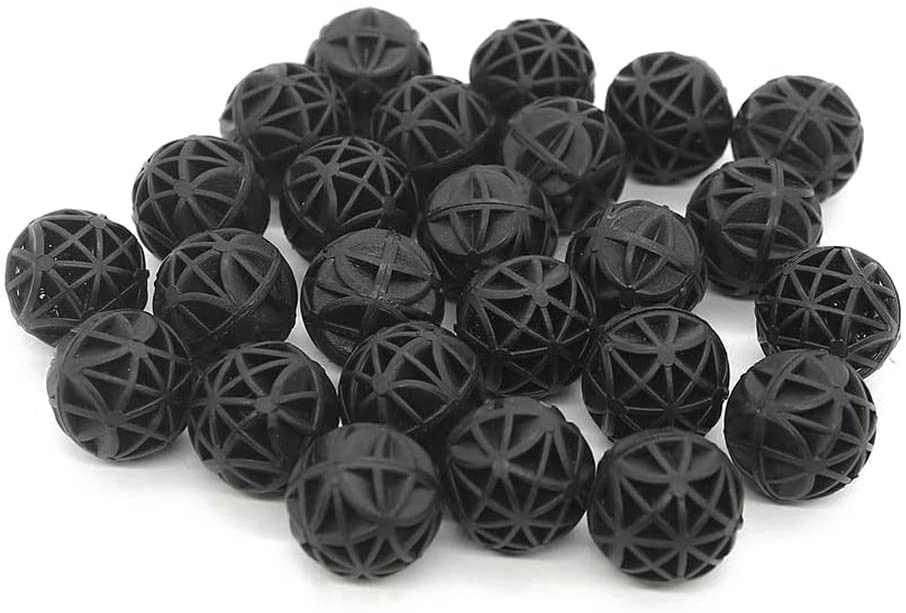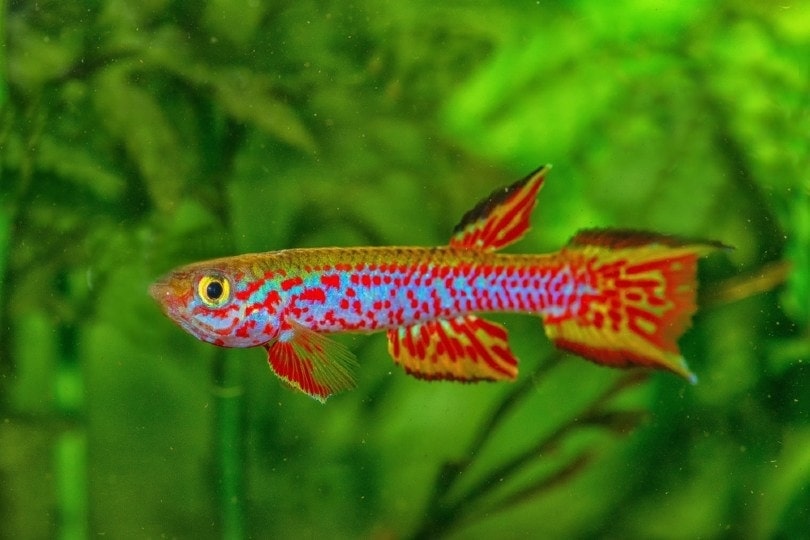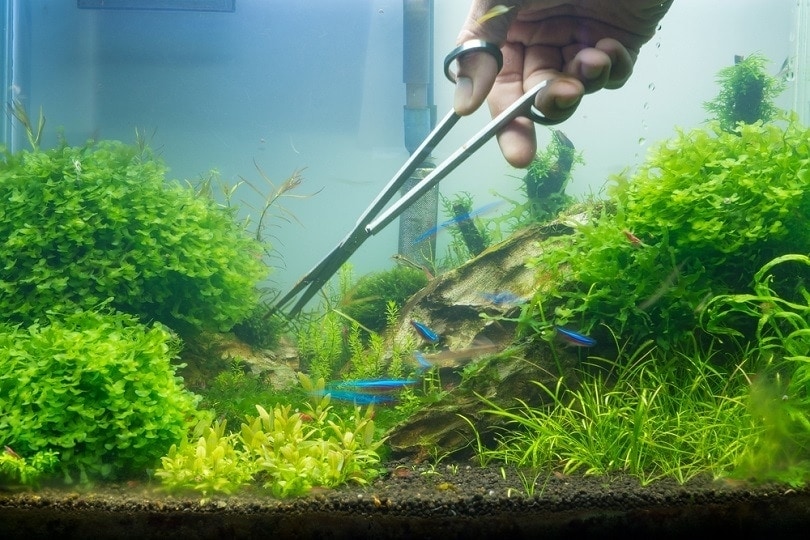Fish Food Flakes vs Pellets: Key Differences, Pros & Cons

Updated on
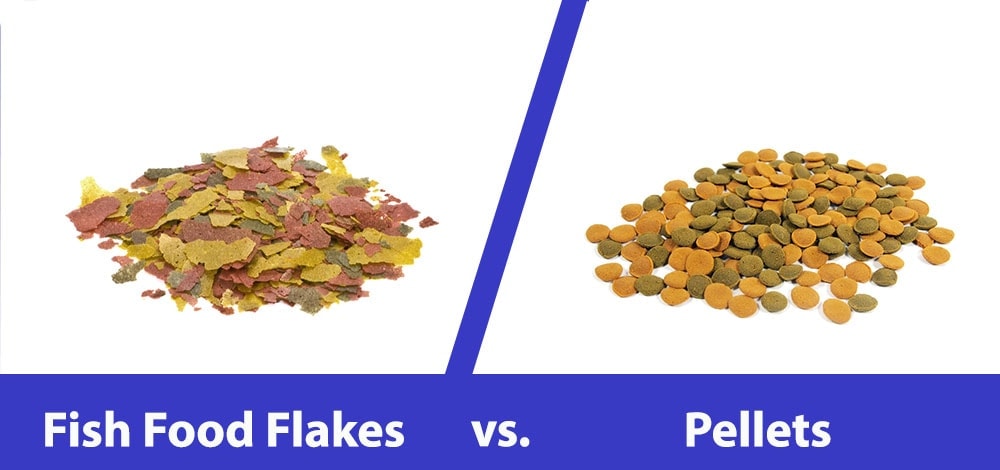
There is a bit of a debate going on right now, the fish food flakes vs pellets debate. People always wonder which one is better, fish flakes or pellets. They are not actually as different as you might think, but it is still worth talking about.
We will do our best to provide you with all of the information you need to make an informed decision here.
Fish Flakes: Summary, Pros & Cons
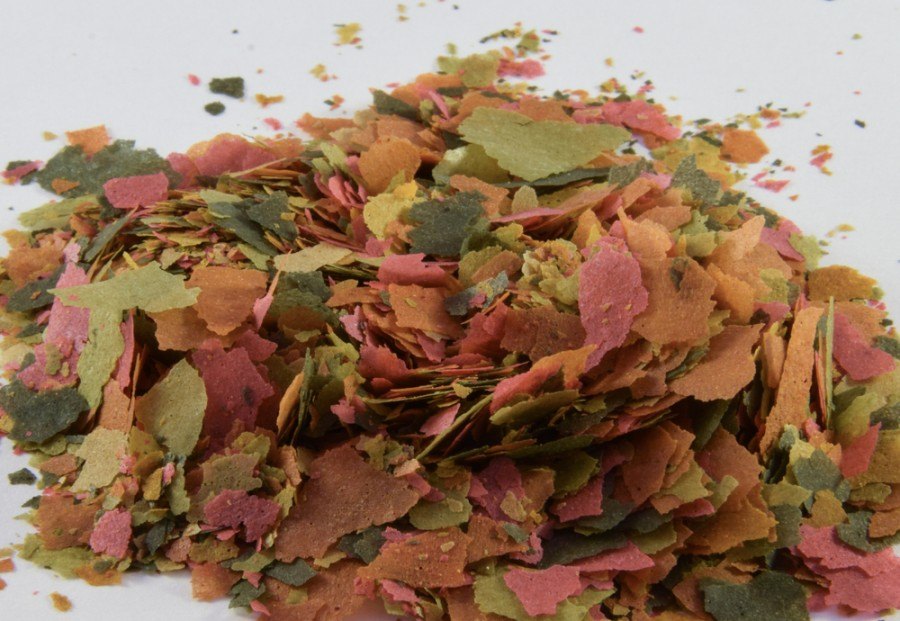
Fish flakes are a staple, probably the most common fish food which people go with. They are nothing more than a mix of various ingredients, usually catered to a specific type of fish. You can find fish flakes that are mainly made of meat protein, ones made mainly of fruits and veggies, ones with algae, and ones with a mix of all of the above.
You can find fish flakes for virtually any type, species, and breed of fish out there. Fish flakes tend to be very inexpensive and can be bought in bulk. These things usually float in the water and do not sink, as well, they tend to disperse themselves in the water as well.
Flake Pros
- Fish flakes can be bought virtually anywhere that carries pet and aquarium supplies.
- Fish flakes tend to be very versatile in the sense that you can find ones for any type of fish out there.
- High-end fish flakes can be very good for fish and come loaded with a plethora of nutrients to assist in healthy growth, energy, coloration, a healthy immune system, and more.
- Fish flakes are great if you have lots of fish that need to be fed and are sure that the flakes will be eaten. They float around in the water, making them easy for fish to pick off before they eventually make their way to the bottom of the tank.
- Fish flakes are small and are therefore perfect for small fish with small mouths.
Flake Cons
- Fish flakes tend to dissolve in the water pretty fast. Flakes that are left uneaten turn into mush and eventually dissolve in the water, thus creating water contamination and water chemistry issues.
- Because they tend to float, are usually not the best option to go with for bottom feeders.
- Fish flakes also don’t have a particularly long shelf life. Once the package is opened up, it usually will not last more than a couple of weeks or a month at the most.
- Due to the size and shape of fish flake food, fish can often gulp down a lot of air when eating them, which then causes digestion and buoyancy issues.
- Fish flakes are usually too small to be of use to larger fish, which would have to eat dozens or hundreds of them for proper nourishment.
- It can be hard to measure how much food you are giving to your fish when feeding them fish flakes.
Fish Pellets: Summary, Pros & Cons
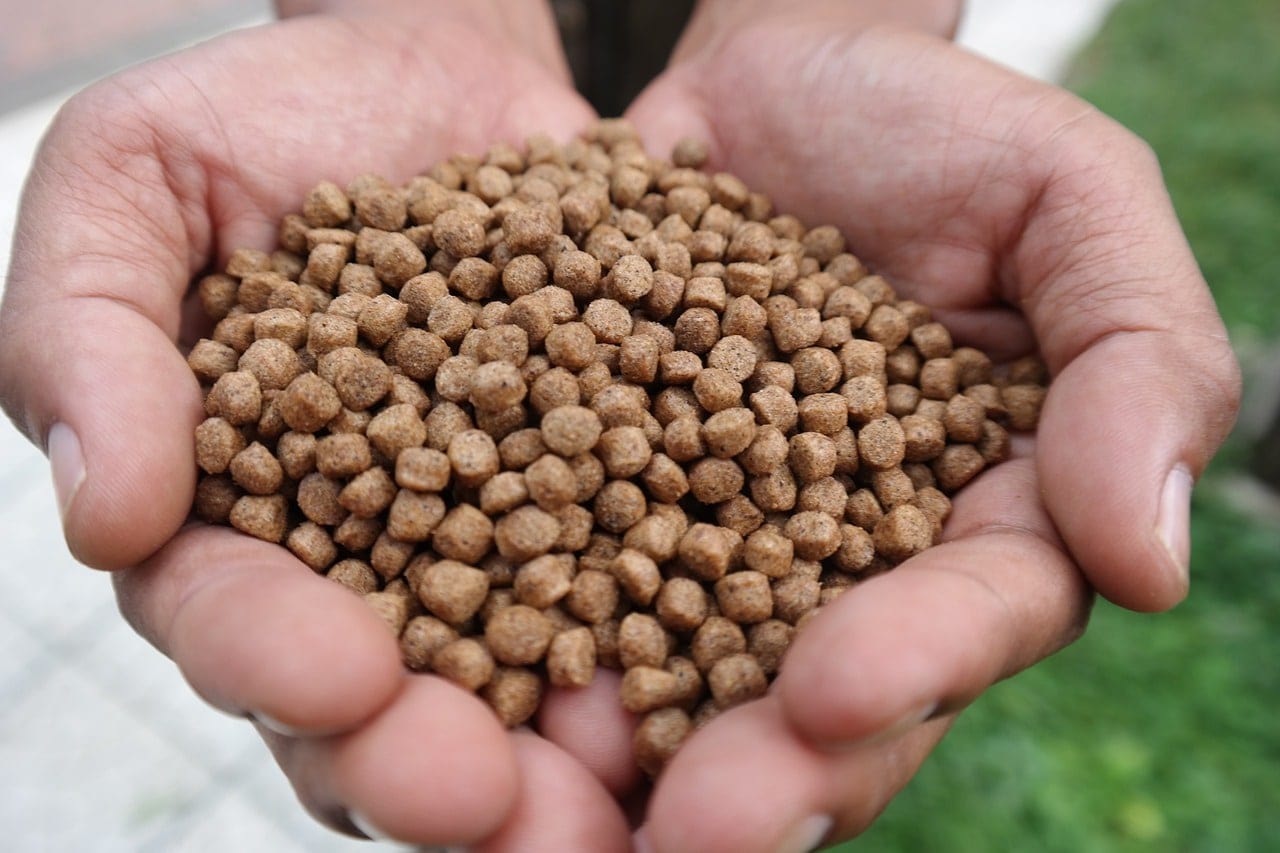
All in all, pellets really are not all that different from fish flakes. Yes, pellet food also comes in a variety of makeups in the sense that you can find pellets for saltwater fish, for freshwater fish, for tropical fish, cold-water fish, meat-eaters, omnivores, and herbivores too. They are also quite versatile in this way.
Pellets are usually also packed with nutritional goodness to help fish be happy and healthy. Of course, pellets are larger than fish flakes and heavier, and thus they are usually made to sink, but there are some floating fish pellet foods out there too.
These are good to go with if you have a few fish that like to eat a lot of food, and if you want to ensure that the food has a long shelf life before expiry.
Pellet Pros
- Due to the size and consistency of fish pellet food, fish usually do not have to worry about swallowing too much air when eating the pellets. It’s a big bonus indeed.
- Fish pellets are also a good option to go with because you can find ones that float, as well as ones that sink. It’s convenient because you can get floating pellets for top and middle column eaters, and you can get sinking pellets for bottom feeders.
- When it comes down to it, pellets, due to their size and consistency, may have more nutritional content than fish flakes. High quality pellets will usually contain more nutritional value than high quality flakes.
- Fish pellets make it easy to judge and measure exactly how much food you are feeding your fish, which helps to avoid both underfeeding and overfeeding.
- Due to the way in which these pellets are made, they tend to have quite a long shelf life, which anybody can recognize as a bonus.
- There are some good automatic fish feeders for pellets.
Pellet Cons
- Fish pellets, if left uneaten, will usually always sink to the bottom of the tank and start to dissolve rather quickly. This can be quite the issue as pellets are known for making a bit of a mess. This can also adversely affect water quality and require you to clean the tank more often.
- On occasion, fish have been known to eat the substrate by mistake when foraging for sunken pellets, which is of course not good and can cause health issues.

Conclusion
Ok, so generally speaking, the differences between these two types of fish food are not huge. In terms of nutritional content, as long as you get the right kind of food for your fish, it really does not matter all that much.
Personally, we might recommend sticking with pellets, as they are easier to judge in terms of how much you are feeding your fish, they have a longer shelf life, and you can find ones that both sink or float. They tend to be a bit more versatile than fish flakes in this way, but flakes are still fine if you just have a couple of small fish that need regular feeding.
However, when all is said and done, the most important thing here by far is that you get the right kind of food with the right nutritional content for your specific fish. For instance, with a goldfish, as long as you provide them with the nutrition they need for growth, energy, a healthy immune system, and more, it doesn’t matter whether you use flakes or pellets.
For instance, if you have a fish that needs 75% vegetable matter and 25% meat protein, you can feed it flakes or pellets—as long as they meet these numbers.
Featured Image Credit to Enmanuel, Shutterstock / de2marco, Shutterstock



